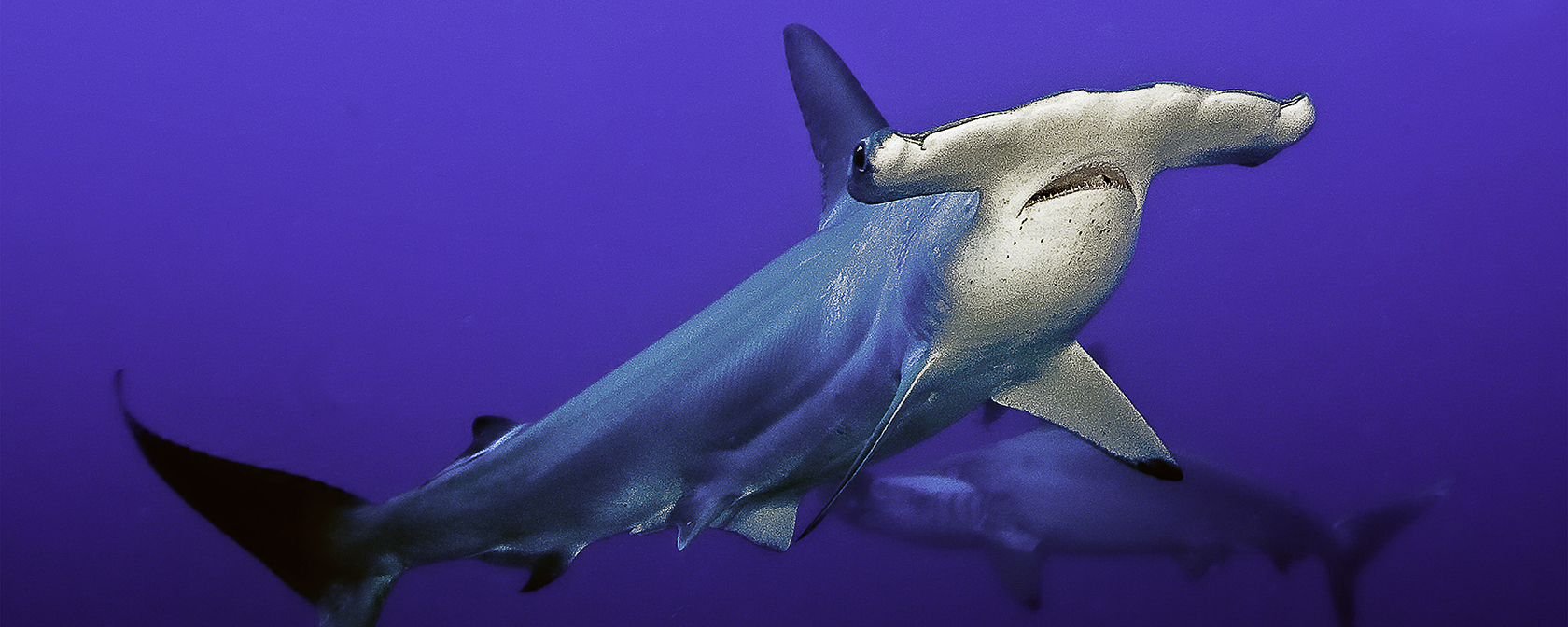By Sara Amundson and Kitty Block
We’ve never cared for the cheap, lurid television programming tied to Shark Week, preferring to join with other groups and media outlets in a celebration of this apex species found in all of the world’s oceans and even sometimes in rivers. Sharks are part of an incredibly diverse taxon, a cluster of nearly 500 related species in urgent need of our attention and energy. We must do all that we can to better protect these vitally important marine creatures, and there’s still time to make a difference.
The need for action is urgent, and the value of action is clear. In a recent study of reef sharks, for example, researchers deployed more than 15,000 underwater video stations on 371 reefs in 58 countries, yet observed no sharks on almost 20 percent of the reefs. Wherever sharks were absent, there was a strong correlation to factors such as poor governance in the nations in whose waters the reefs were located. Conversely, more sharks were observed in waters that enjoyed protections such as sanctuary status, fishing catch limits and bans on fishing by gillnets and longlines.
Sadly, this study underscores the grim statistics derived from other reviews, including the fact that sharks are killed 30 percent faster than they can reproduce, and that some shark populations have declined by as much as 90 percent in recent decades.
One key factor in their demise is the shark fin trade. Fins from up to 73 million sharks are traded every year in an international commerce tied to shark fin soup, a high-end status dish in many parts of the world.
It is a shock for many Americans to learn that the United States is an active participant in this trade. Many U.S. restaurants serve shark fin soup, and many stores sell shark fins. Thanks in large measure to the HSUS’s efforts, 15 states and three territories ban or limit the sale of shark fins, and those laws are being enforced in these states: an Oregon grocer pleaded guilty in June to possessing, selling, or trading shark fins, and in February Texas wildlife officials conducted a bust of Houston and Dallas restaurants serving shark fin soup.
Still, the sale of shark fins is still legal throughout most of the country. U.S. fishers catch sharks and process and sell their fins, often for export, at a rate that’s difficult to calculate because of labeling regulation quirks. The United States also imports many shark fins, principally from countries with poor or nonexistent fishing laws or enforcement practices.
A February confiscation of 1400 pounds of shark fins in PortMiami highlights the United States’ major role as a transportation hub in the shark fin trade network. The shipment, valued at nearly $1 million, originated in South America and was likely headed to Asia—a typical route for U.S. shark fin transshipments. Latin America is one of the world’s primary shark-fishing regions, and some nations in Central America ship as much as one-third to one-half of their shark fins through U.S. ports. Despite U.S. and international laws that regulate the shark fin trade, such shipments passing through this country are rarely inspected.
Finning involves slicing the fins off a shark, then discarding the mutilated animal if still alive to drown, bleed to death, or be eaten alive by other fish. Finning is illegal in U.S. waters, but that does not mean our hands are clean. Once on land, fins can legally enter the fin trade, so there’s an incentive for U.S. fishers to take part in it. In addition, the U.S. shark fin trade fuels finning in nations with inadequate protections or on the high seas, where weaker or no laws apply and enforcement is difficult.
The fin trade also promotes general fishing practices that have helped drive the drastic decline in sharks. The value of fins can disincentivize fishers from their responsibility to reduce accidental catch of sharks in fishing operations for other fish. The desire for profitable fins can also spur fishers and seafood distributors to find markets for other shark parts, such as meat, increasing overall demand. Only 32 percent of U.S. shark fisheries are sustainable—the highest rate of any nation, but admittedly a low bar—overfishing of sharks is a serious threat.
We’ve been pushing for enhanced protections for sharks around the world and have helped to secure and strengthen finning bans in a number of EU nations as well as in Australia, New Zealand, India, Brazil, Peru and Taiwan. We were instrumental in Canada’s passage of a landmark bill last year to prohibit the trade in shark fins as well as finning in Canadian waters. We also helped to secure CITES protections for 25% of the species common in the global shark fin trade. Finally, at our urging, a number of stakeholders in the culinary and travel industry have taken steps against the shark fin trade. Some 45 airlines and numerous international hotels have adopted a No Shark Fin policy.
One good step Americans can take right now is to press the Senate to take the United States out of the trade. The Shark Fin Sales Elimination Act, S. 877, would end all commercial trade in the United States of shark fins and products containing shark fins. Its House counterpart passed by a vote of 310 to 107 last November. We have until December to secure its passage. Please do your part by asking your two U.S. senators to support the Shark Fin Sales Elimination Act, S. 877!
Ask your senators to support the Shark Fin Sales Elimination Act today >>
Kitty Block is President and CEO of the Humane Society of the United States.




